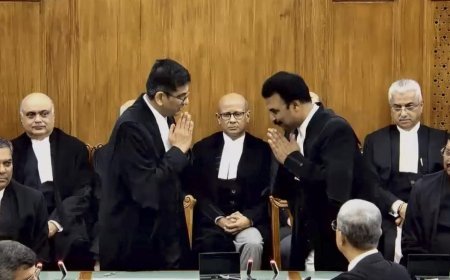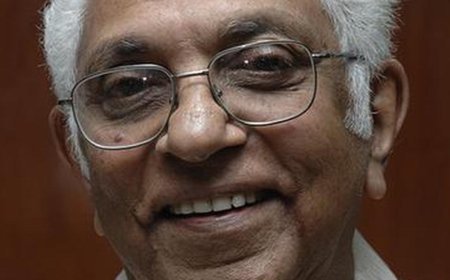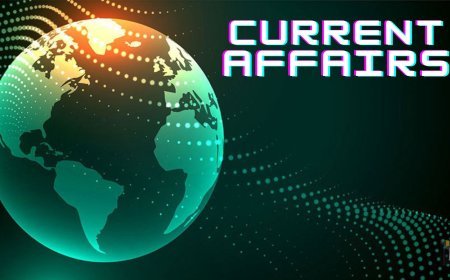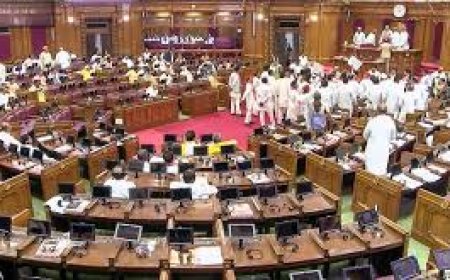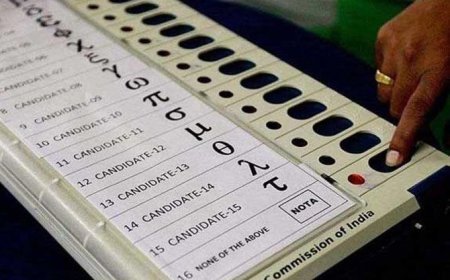23rd Law Commission of India: New Tenure, Current Relevance, and Comprehensive Overview
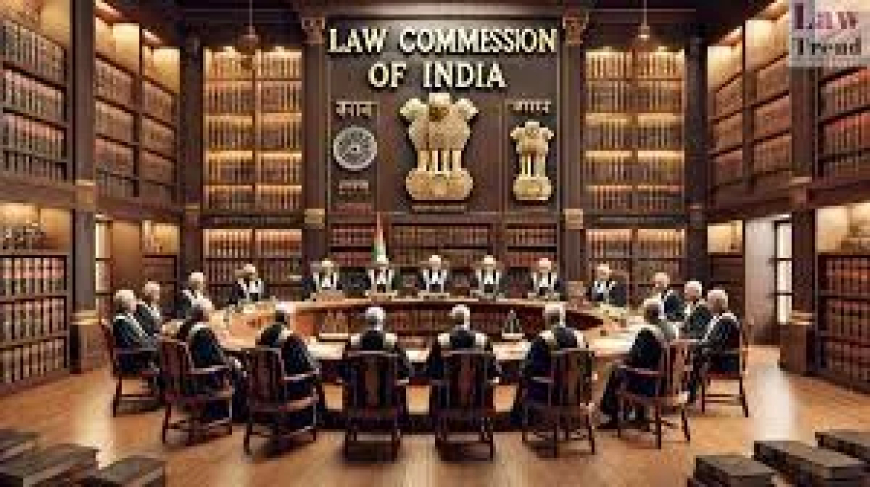
23rd Law Commission of India: New Tenure, Current Relevance, and Comprehensive Overview
Introduction
The 23rd Law Commission of India is a key advisory body formed by the Government of India to recommend legal reforms and modernize outdated laws. It serves as an instrument for ensuring that India’s legal system remains efficient, fair, and adaptable to evolving social and economic dynamics.
- Latest Update: On September 1, 2024, President Droupadi Murmu reconstituted the commission, setting its new tenure from September 1, 2024, to August 31, 2027.
- Chairperson: Justice Rituraj Awasthi (former Chief Justice of Karnataka High Court) continues to lead the commission.
- Primary Mandate: Research, review, and recommend changes to existing laws, propose new legislation, and ensure legal reforms meet current societal needs.
Recent News: Why the 23rd Law Commission Is Back in Focus
The 23rd Law Commission of India is currently in the news due to the extension of its tenure. Here’s why it has recently captured public attention:
1. Extension of Tenure (September 2024 – August 2027):
o President Droupadi Murmu officially sanctioned the reconstitution of the commission, providing it with a fresh three-year tenure. This extension emphasizes the government’s commitment to ongoing legal reforms and ensures continuity in addressing critical legal issues.
o The reconstitution aims to maintain momentum on key legal projects initiated during its previous term (February 2023 – August 2024).
2. Focus on High-Impact Reforms:
o The reconstituted commission will continue to work on controversial yet crucial legal matters, including the Uniform Civil Code (UCC), sedition law reforms, and digital data protection laws.
o It will also advance its efforts in modernizing India's criminal justice system, addressing gender justice, and strengthening environmental regulations.
3. Continuity of Leadership:
o Justice Rituraj Awasthi’s continued chairmanship ensures that ongoing projects will benefit from consistent guidance, enabling smoother execution of legal reviews and recommendations.
Objectives and Mandate of the 23rd Law Commission
The 23rd Law Commission has a broad mandate to make India’s legal system more effective, fair, and aligned with present-day realities. The primary objectives include:
1. Review of Existing Laws:
o Identifying and eliminating obsolete or redundant laws.
o Recommending amendments or repeals to streamline the legal code.
2. Addressing Contemporary Legal Challenges:
o Focused on emerging issues like digitalization, data protection, environmental protection, and economic laws.
o Adapting international legal best practices to Indian legislation.
3. Improving Access to Justice:
o Suggesting reforms to enhance judicial efficiency and ensure faster resolution of cases.
o Ensuring that legal reforms consider the needs of marginalized and underrepresented communities.
4. Promoting Governance and Human Rights:
o Revisiting laws related to governance, transparency, accountability, and human rights protection, with a special emphasis on gender equality and women’s rights.
Key Features of the 23rd Law Commission
The 23rd Law Commission stands out due to its distinctive approach to legal reforms:
1. Extensive Research and Analysis:
o It undertakes comprehensive legal studies, employing comparative analysis to assess global legal standards and adapting them to Indian laws.
2. Stakeholder and Public Engagement:
o It actively invites feedback from legal professionals, civil society, the general public, and academic institutions, making reforms more inclusive.
o For instance, its call for public opinions on the Uniform Civil Code (UCC) generated more than 8 lakh responses in 2023, reflecting high public interest.
3. Modern Approach to Legal Challenges:
o The commission has a clear focus on digital law, cybersecurity, environmental protection, and gender justice, making it more relevant to current socio-legal dynamics.
4. Focused on Equality and Secularism:
o The commission is committed to advancing the Uniform Civil Code (UCC), which seeks to create a uniform set of personal laws across communities to ensure gender equality and uphold secular legal principles.
Major Areas of Focus in the New Tenure
With its extended term, the 23rd Law Commission aims to intensify efforts in several critical areas:
1. Uniform Civil Code (UCC):
o The commission will continue its review of the UCC, focusing on its feasibility, impact, and implementation strategies to unify personal laws across religions and communities.
2. Reform of Sedition Law (Section 124A of IPC):
o It is reviewing the sedition law, aiming to balance national security needs with the protection of free speech and civil liberties.
3. Digital Data Protection:
o The commission is drafting robust digital privacy laws to address rising concerns over data security, user privacy, and cyber threats.
4. Criminal Justice System Overhaul:
o Efforts to streamline investigation procedures, ensure victims’ rights, and improve trial processes to reduce judicial delays and enhance fairness in the legal system.
5. Environmental Legislation:
o Proposals for stricter regulations on pollution control, sustainable development, and adherence to global climate commitments will be prioritized.
Challenges and Limitations Faced by the 23rd Law Commission
The commission’s work is not without challenges, some of which include:
1. Political Sensitivities:
o Reforms like the Uniform Civil Code and sedition law amendments often encounter resistance from different political and religious groups, making consensus-building essential for successful implementation.
2. Implementation Delays:
o While the commission can only make recommendations, the actual implementation depends on the legislative process, which can be slow and inconsistent.
3. Resource Constraints:
o Adequate funding, access to legal expertise, and sufficient research infrastructure are crucial but may be limited, affecting the pace and depth of the commission's work.
Implications of the Reconstituted 23rd Law Commission
The reconstitution of the 23rd Law Commission for a new tenure signifies several key implications:
1. Continuity in Legal Reforms:
o The extension allows the commission to pursue ongoing reforms more effectively, ensuring that high-priority issues like the UCC and sedition law receive sustained focus.
2. Strengthening India's Legal Framework:
o The commission’s recommendations are expected to modernize laws, making them more relevant to contemporary social and economic needs, thereby promoting fairness and efficiency in the legal system.
3. Societal Impact:
o By addressing issues like gender justice, digital privacy, and environmental sustainability, the commission's reforms have the potential to bring about significant improvements in governance, public welfare, and access to justice.
Conclusion
The reconstitution of the 23rd Law Commission of India underscores its critical role in shaping the country’s legal landscape. With a renewed mandate from September 2024 to August 2027, the commission is set to continue its efforts in legal reforms across various sectors. Its work on contentious issues like the Uniform Civil Code, sedition law, and digital privacy will define the next phase of legal evolution in India. Successful outcomes will depend on collaborative efforts between the commission, lawmakers, and civil society to implement these reforms and create a more just, efficient, and inclusive legal system.
What's Your Reaction?






























